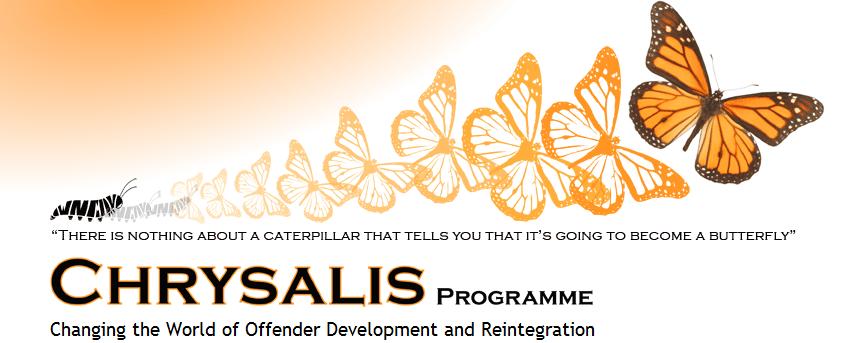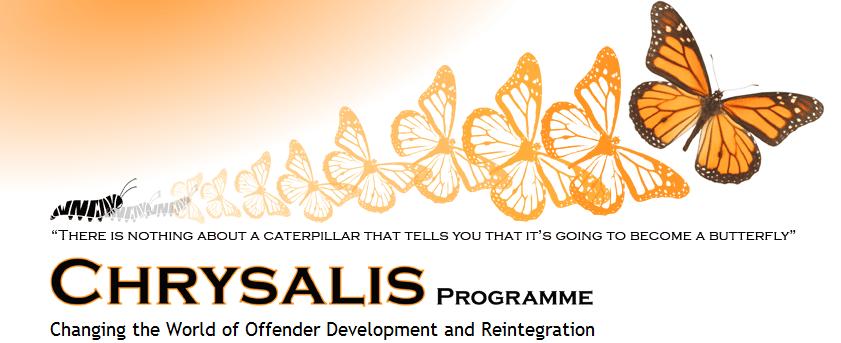[dropcap style=”font-size:100px; color:#992211;”]’M[/dropcap]ost people want to change, they just need a helping hand and some guidance.’
David Apparicio is the creator of the Chrysalis Programme.
During his work as a magistrate he developed his ambition to change the world for offenders. Recently invited to become a Fellow by the Trustees of the Royal Society of Arts in recognition of his ‘innovative work in offender rehabilitation and development’, Apparicio was also awarded with a place on the 2009 Courvoisier Future 500 list of innovative business brains and creative talent.
Trebuchet’s Luc Floreani talked to him.
You are very passionate about inspiring young people. Why is the Chrysalis Programme important in today’s society?
I believe that we as a society have created the growing problem of what I call the ‘Dis. Generation’ Remember where you heard it first!
We’ve all heard of the ‘thirty-somethings’, ‘baby-boomers’, ‘YUPPIES’, ‘NEETs’, etc, but the ‘Dis Generation’ are a generation or two of young people that are:
disaffected, disillusioned, disengaged, disconnected, disadvantaged, disavowed, dispossessed, discarded, disregarded, disappointed.
[quote]Our current UK criminal
justice system is a broken
business model with a resultant
75% failure rate. This failure rate
would not be tolerated in any
other industry/business.[/quote]
They lack the ‘essential life skills’ that would enable them to interact with other human beings around them. Many of these individuals end up on the wrong side of the law. Many bump around not sure what to do with their lives and are given little support and/or guidance to help them move forward.
Combining my experience as a Justice of the Peace (Magistrate) and designer of management training programmes (Previously Head of Learning and Development within The Royal Mail), I personally funded the research, design and piloting of the innovative development solution called The Chrysalis Programme.
Offenders
Through this research it became apparent that:
Prison sentences are not succeeding in turning the majority of offenders away from crime and short prison sentences simply in reducing re-offending.
Sadly, the Criminal justice system operates a ‘Broken Business Model’ with 75% failure rate that would not be accepted in any other industry.
What was interesting was the approach in the criminal justice system is very different to that of the business world when it attempts to close the gap between actual and desired behaviours/performance.
Criminal Justice System
In the Criminal Justice System the intervention in a sentencing situation is primarily to administer custodial or community based punishment (negative re-enforcement), whereas in the business world where there is a gap in behaviours, you would aim to close that gap through the provision of knowledge, skills, practice, behaviours/values (training) that moves the individual to our desired state (positive reinforcement) – Creating Capability!
The programme is achieving amazing results, How does the Chrysalis Programme work?
Our different approach stems from our name – Chrysalis. The Chrysalis is the critical stage in the transformation of a caterpillar to a butterfly. The Chrysalis provides ‘a protected stage of development’. I believe that if you provide a safe and protected environment for learning development then you can achieve sustainable transformation in thinking rather than a temporary change in behaviours
[quote]we should have a Minister
for Reducing Re-offending with
a single performance measure
of reducing re-offending,
not a Minister for Prisons[/quote]
The Chrysalis Programme consists of a series of guided learning sessions/modules delivered using a mixture of presentations, group and individual exercises, practical activities, problem solving, listening and discussions.
The difference between the Chrysalis Programme and most other programmes is that we focus on positive reinforcement that helps create capability, increases self-confidence, self-belief, self-esteem in participants by providing them with, what we call ‘essential Life skills’ which enables them to personally own and drive positive, sustainable change in their lives.
We focus on telling them what they can and should do and how to achieve positive outcomes (positive re-enforcement), rather on telling them what they mustn’t do or should not have done (negative reinforcement).
Reintegration
As a society, do you think our judicial system is working for us?
No it is not. Quite simply our current UK criminal justice system is a broken business model with a resultant 75% failure rate (75% reoffend with two year of leaving prison). This failure rate would not be tolerated in any other industry/business. So why do we accept it here?
So how can we change the system you ask me? Well, five simple things…
A. Let’s Stop talking about Rehabilitation when we mean Reintegration
We have historically used the term Rehabilitation when talking about the holistic approach to offender management, when in fact what we really need to be focussing on is how do we Re-Integrate someone back into their lives, relationship with partner, family, their local communities and society as a whole?
We know that this done well greatly reduces the individual’s propensity to reoffend.
B. Let’s stop talking about training and start talking about Learning & Development
Let me explain. There is a fundamental difference between Training and Learning & Development.
Training is about the acquisition of skills or knowledge and then the application of these in current roles/situations. It is often compliance-driven, focuses on groups, is short term and about ‘doing’.
Learning & Development is about attitudinal and behavioural change – it provides individuals with future capability. It is about behaviour change, focuses on the individual, creates long term change and is about ‘Thinking’.
C. Let’s rename the Minister for Prisons (and rehabilitation) to the Minister for Reducing Reoffending and Reintegration
The business guru, Peter Drucker advocated that success is based on the simple insight of:
‘What gets measured gets managed; and what gets managed gets done’.
Based on that premise surely we should have a Minister for Reducing Re-offending with a single performance measure of reducing re-offending, not a Minister for Prisons whose tasks is to ensure the effective utilisation and management of an expensive resource (the Prison Estate)!
D. Let’s stop solely focussing on punishment (negative reinforcement) and start looking at development interventions (positive reinforcement).
We all know/understand that negative reinforcement (punishment) alone, is extremely unlikely to produce a positive outcome.
E. Let’s stop talking about changing behaviours and start focussing on changing Thinking and Attitude (changing paradigms)
What event in your life made you change your ordinary state to one where Trebuchet now wants to talk to you?
Basically I became frustrated, as a Justice of the Peace (Magistrate), at the level of reoffending in the UK and decided to explore/research why re-offending levels were so high. Typically in the UK, 75% of individuals reoffend within two years of release from Prison at the cost of £13 Billion per annum. [Source: Social Exclusion Unit]
I simply felt that there must be a better way! Then a thought popped in my head:
“There is nothing about a caterpillar that tells you it’s going to become a butterfly”
This has fuelled my vision and passion for change.
Why is getting involved in the Chrysalis Programme important?
“Any society, any nation, is judged on the basis of how it treats its weakest members — the last, the least, the littlest”
– Cardinal Roger Mahony
Remember: If we helped just one persistent/prolific offender to change, this would equate to preventing tens/hundreds of offences from being committed, which in turn would mean that hundreds/thousands of victims would be spared the trauma/impacts of crime, and could equate to hundreds of thousands of pounds (if not millions of pounds) of savings… and of course we are not going to be aiming for just one!
Most people want to change, they just need a helping hand and some guidance.
The programme is already in prisons across the UK and now you are starting in Australia with the St Vincent De Paul organisation. How does the programme transfer?
The reason that The Chrysalis Programme is so transferrable is because it is a world class Personal Leadership and Personal Effectiveness Development Programme which has been created to provide individuals with the skills, knowledge, behaviours, a change in Thinking and Attitude to enable individuals that want to own and drive personal change in their lives. It is not an offender programme. Because of my personal passion, I happen to be using it with offenders/ex-offenders.
To date we have delivered Chrysalis programmes to businesses, Hospitals, Prisons, Probation (Young Offenders, Veterans, Lifers, Sex Offenders, general population and vulnerable prisoners), Drug and Alcohol addicts, Schools, Housing/Homeless.
Over the last five years, we’ve had over 500 Offenders/Ex-offenders participants. Focussing on just HMP/YOI Reading over the past 2 years, we’ve had 114 attendees, with 82.5% (94) completing and 60% (70) of ‘completers’ not reoffending. This equated to a public purse saving of £10,672,200 [Source: Social Exclusion Unit]
Photo: Sean Keenan
[button link=”http://www.chrysalisprogramme.com/index.html” newwindow=”yes”] Chrysalis Programme[/button]
Luc Floreani international singer songwriter was born in Alice Springs, Central Australia.
Luc has performed all over the world in venues from Royal Festival Hall to Glastonbury Festival and on the famous West End.
He has worked with such luminaries as Amy Winehouse, Corrine Bailey Rae, numerous X Factor contestants, Jack Bruce, Marcella Detroit, Tony Hatch, Barry Mason, Kasabian, Darren Hayes, and Starsailor to name a few
He wrote and sung the theme tune for
-Channel 7 television current affairs program “Today Tonight” in Australia,
-The Prince’s Trust campaign song,
-Euro Gay Pride theme song 2011
-Chrysalis Foundation
-The title track to the film “Darkness” and Hedda Gabler. In 2007 Luc reached no. 17 in the charts with his single “Taboo” featuring Angie Brown.
Luc has written most genres of music from Metal through to Jazz, Pop, Country and Classical
He has also published a book “Written on Paper”
He has just finished recording his second album.
Luc is the current host for OK Magazine Music Sessions online. “Live with Luc Floreani”





















trust in offenders is a big issue.he used my husband as he has many ex offenders .this sadley is the case in many programes in the uk system .no prolific offenders go on his program they are hand picked to gain stats for funding.
Thanks for the comment Natalie.